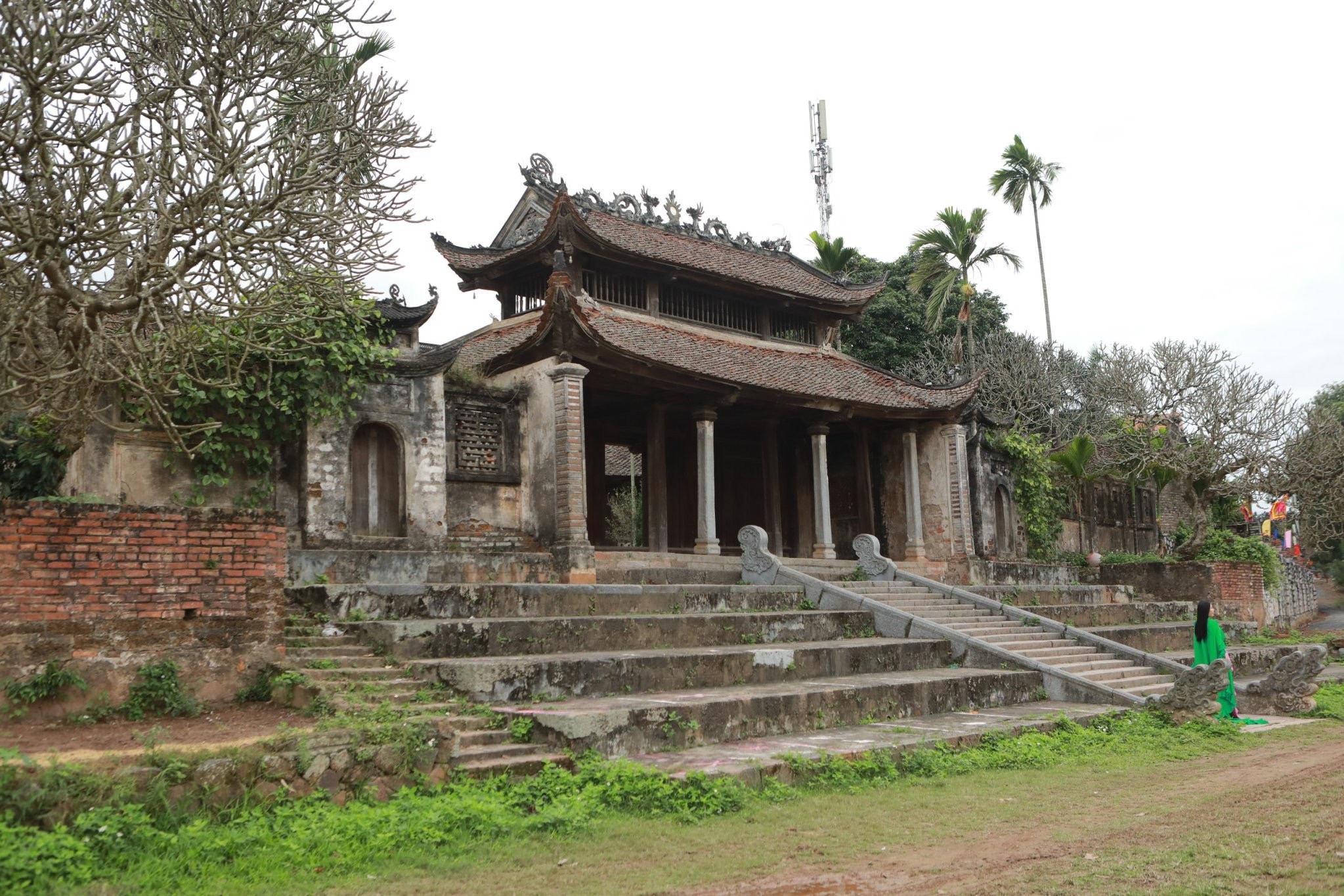Agri-tourism blossoms in Hanoi suburb of Quoc Oai
The district's ambitious tourism development goals for the coming years focus on changing the structure of the rural economy to one based on trade and services.
The development of agricultural production combined with experiential and eco-tourism is opening up new opportunities for farmers in Quoc Oai District, some 30 kilometers southwest of Hanoi.
| Tourists enjoy grape harvesting at Xu Doai Agricultural Cooperative. Photos: nongthonvaphattrien.vn |
This model is currently being successfully implemented by the Xu Doai Agricultural Cooperative in Cong Hoa Commune (Quoc Oai District). It helps to diversify agricultural products, reduce fallow land, create jobs, and increase income for rural people.
The black grape garden of the Xu Doai Agricultural Co-operative has been a magnet for visitors this summer for sightseeing, photography, and grape harvesting.
Vuong Dac Loc, the cooperative's director, said that when they started this model in 2023, there were many difficulties, which were later overcome thanks to the hard work of all the members.
He added that the cooperative has mobilized all its resources to develop production and expand the business model according to the goals and directions set.
"We increased the area from five poles (about 1,500 square meters) to two hectares after conducting a study and finding that the black grape variety responds well to the local climate and soil conditions. The model has exceeded expectations after almost two years of operations," he said.
Each year, about 6,000 people visit the grape garden, generating about VND150 million (US$6,046) from ticket sales. In addition, they supply more than seven tons of fresh grapes to the market, earning more than VND1 billion (US$40,308) annually, according to Loc.
Building on the success of the black grape model, the cooperative is also launching a 10-hectare lotus cultivation project, with plans to expand to 20 hectares, to diversify experiential tourism products and attract more visitors, the director said.
In addition to boosting tourism, the cooperative is diving into innovative research and development of grapes and lotus products to satiate the adventurous palates of tourists.
"We offer an enticing range of products, including refreshing grape juice, exquisite grape wine, chilled lotus root, lotus starch, lotus vermicelli, fragrant lotus essential oil, and soothing lotus leaf tea," Loc said. "These offerings not only increase the cooperative's profits but also pave the way for new opportunities in Quoc Oai District."
Nguyen Thi Thu Trang, Head of the Quoc Oai District Economic Division, said the district People's Committee unveiled a dynamic plan for the development of rural agritourism in June for 2024-2025.
She added that this ambitious plan calls on communes and towns with unique potential to set up at least one distinctive agricultural tourism model that brings together farmers, cooperatives, local businesses, and enterprises.
"Key features include developing an ecological tourism experience that showcases grape gardens and lotus farms in Cong Hoa Commune, along with visits to the historic So Temple and the traditional vermicelli-making village," she said.
| Development of organic agriculture combined with the promotion of So Village's cultural heritage to enhance experiential tourism. |
In addition, the plan aims to establish community experiential tourism in Dong Xuan and Phu Man communes, as well as provide opportunities to hike through picturesque tea hills, vibrant fruit orchards and enchanting flower gardens in Hoa Thach commune, according to Trang.
The district is embarking on an exciting initiative to create tours highlighting OCOP (One Commune One Product) offerings and traditional crafts in the vibrant communes of Dong Quang, Phu Cat, Nghia Huong, Dong Yen, Can Huu, Tan Phu and Ngoc My. "These efforts are aimed at bringing in a diverse crowd of domestic and international tourists," she stressed.
She explained that the district's ambitious tourism development goals for the coming years focus on transforming the rural economic landscape towards trade and services. This includes expanding the share of tourism services in the rural economy and fostering collaboration to build an effective agro-tourism value chain.
Trang also emphasized that these initiatives are designed to enrich the material and spiritual lives of rural residents, facilitating a shift to a multi-value economic structure. They also set the stage for the expansion of ecotourism and adventure tourism, creating new opportunities for growth in rural areas.
"The success of these innovative models will inspire farmers to move beyond traditional crops and livestock and enable them to realize the potential of their own land by combining agricultural production with tourism," emphasized the Head of the Quoc Oai District Economic Division.












